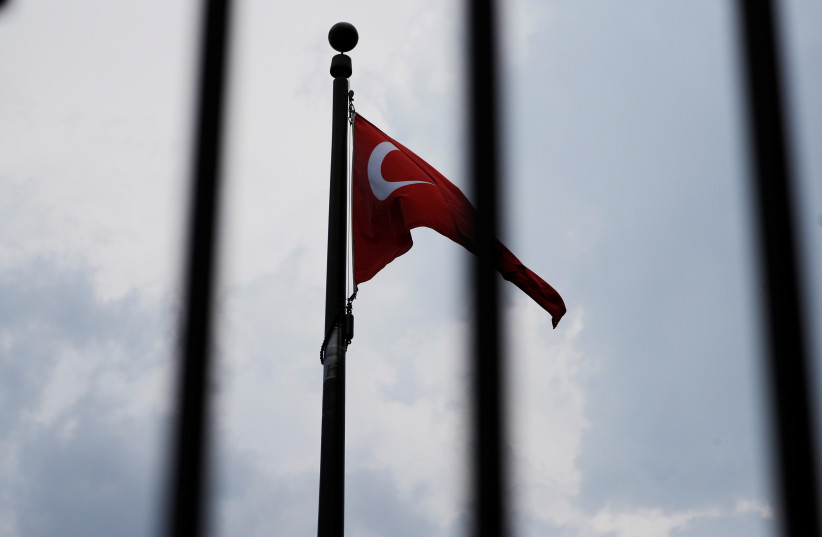Turkey’s elections on Sunday are being watched closely throughout the Middle East, Asia and Europe.
This is because Turkey plays a role in several key areas. It is a member of NATO; it is brokering a grain deal amid the Ukraine war and it is also developing its own arms sales, which will increasingly affect conflicts in places like Africa.
If neither presidential candidate gets more than 50% of the vote, a run-off will take place on May 28. Turkey will also elect 600 members of the Turkish parliament, the Grand National Assembly. There are 87 electoral districts in 81 provinces. Some of them have been affected by the massive earthquake in February.
Turkey has also become an increasingly authoritarian state under the two-decade rule of the Islamist Justice and Development Party (AKP). Turkey’s President and long-time ruler Recep Tayyip Erdogan navigated the country to a presidential system, ditching the prime minister’s role and centralizing power.
This is similar to the trend in countries like Russia, where once one party and its male leader came to power, he centralized power and guided the country on a more nationalistic path. Erdogan now faces Center-Left challenger Kemal Kilicdaroglu, who has united the opposition. Many experts believe he could be successful.

Ankara’s foreign policy
Ankara’s foreign policy has also tried to set Turkey on a new course. Ankara believes it has had to chart an independent foreign policy, meaning it has become closer to Russia and less so to NATO, even preventing Sweden from joining the alliance.
Also Ankara has created numerous crises with various countries, threatening Greece and Israel over the years, encouraging tensions between Azerbaijan and Armenia, and even invading parts of Syria, frequently launching military incursions into Iraq and stoking tensions over places far away, like Kashmir.
In recent years, inflation and economic crisis, as well as a downward spiral in relations with the US, has led Ankara to change course and try to reconcile with countries. Turkey is now debating normalizing ties with Syria’s regime and has sought to repair ties with Israel.
Therefore, all eyes are on what may come next in Turkey. Some believe that if the opposition candidate, who has sought to unify a usually fractured opposition, wins, then Turkey might chart a new course that is more moderate and democratic.
However, these beliefs about how Turkey might change tend to ignore that 20 years of educational and demographic change mean that Ankara may be on a more permanent right-wing, religious and nationalist trend that tends to be more anti-Western.
Turkey currently has a large number of parties, from the right-wing AKP and Nationalist Movement Party (MHP) to the more Center-Left Republican People’s Party (CHP) as well as left-wing Peoples’ Democratic Party (HDP).
It also has a plethora of other small parties, some of them nationalist, some on the Left and some on the Right. Many of these are historical parties that have roots going back to the founding of modern Turkey in the 1920s under Kemal Ataturk.
The media is watching closely
Media in the region are watching closely. In the UAE, the Al-Ain media website had a long article looking at the chances the opposition has at winning. It notes that it has successfully united most of the opposition and that it promises to bring new blood into the political system.
This is despite the opposition leader not being young. He was born in 1948. However, his mild manners and lack of extremism are in contrast to the nationalist and xenophobia often put forward by the current ruling party.
In terms of Israel-Turkey ties, it’s possible an opposition victory could improve relations but Turkey’s current leader has also tried to repair ties. One of the issues is that the AKP is rooted in the Muslim Brotherhood, like Hamas, and therefore it is more inclined to want to orient Turkey politically in favor of more “Islamic” causes, such as Gaza.
Recent press reports, for instance, portray Israel as bombing Gaza with impunity. Those reports ignore the terrorist attacks of Islamic Jihad.
It remains to be seen if Turkey will have free and fair elections. There are concerns that social media could be exploited, and towards that end, Twitter has said it is enforcing certain policies on content in Turkey.
Iran’s pro-regime media have said that recent trends indicate that Erdogan will likely win on Sunday. Iran likely prefers Erdogan; Russia has the same preference. Western countries are monitoring the situation to see if a real democratic election will take place, or if the ruling party will attempt last-minute maneuvers that could impact the vote.
